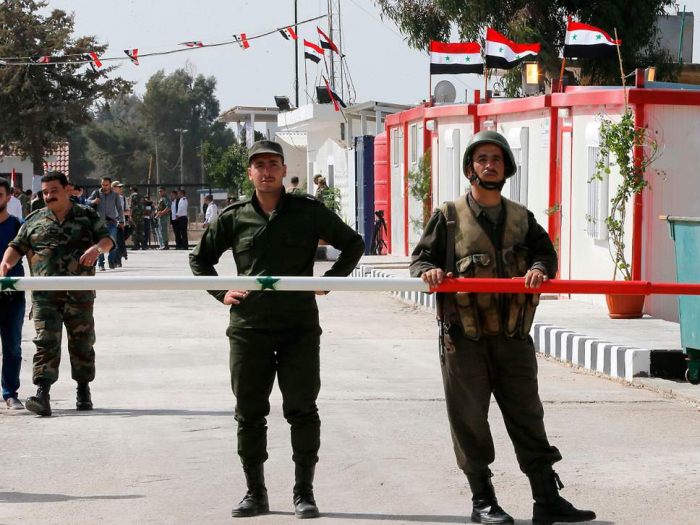Earlier this week the government of Syria’s president, Bashar al-Assad, received a major boost as the country’s commercial gateway with Jordan and a crossing to the Israeli-occupied Golan Heights were reopened.
The simultaneous reopenings of the crossings were celebrated on state media with back-to-back coverage, reinforcing the regime’s narrative it is slowly emerging as the victor of the seven-year civil war.
“We have sought to reopen Nassib border crossing with Jordan, and we will open other border crossings with Iraq soon,” said Bashar Jaafari, Syria’s UN envoy, Al-Manar TV reported.
His comments to the UN Security Council on Wednesday came after Iraq’s foreign minister, Ibrahim al-Jaafari, said “no one should isolate Syria”.
During a press conference with his counterpart in Damascus on Monday, he added that he was advocating for Syria’s return to the Arab League.
President Assad’s regime has been largely isolated by its Arab neighbours since the civil war broke out in 2011.
The 22-member Arab League froze Syria’s membership shortly after the war began, imposing sanctions and cutting diplomatic ties.
Syria’s civil war has killed an estimated 450,000 people and drawn in regional and international powers, leaving entire towns and neighbourhoods in ruins.
Aided by Russia and Iran, the Syrian military has clawed its way back and recaptured key territory from the Syrian opposition in the past two years.
The reopening of Syria’s crossing with Jordan three years after it closed promises to restore millions of pounds' worth of trade.
It will allow Syrian vegetables and fruits to find their way to Gulf, Turkish and Arab markets more easily and construction and raw materials will find a faster route into Syrian cities and towns devastated by the war.
Separately, Israel reopened the Quneitra crossing on its occupied Golan Heights front with Syria on Monday.
The Israeli military said only UN peacekeepers would be allowed across for now.
More about: Syria United-Nations















































